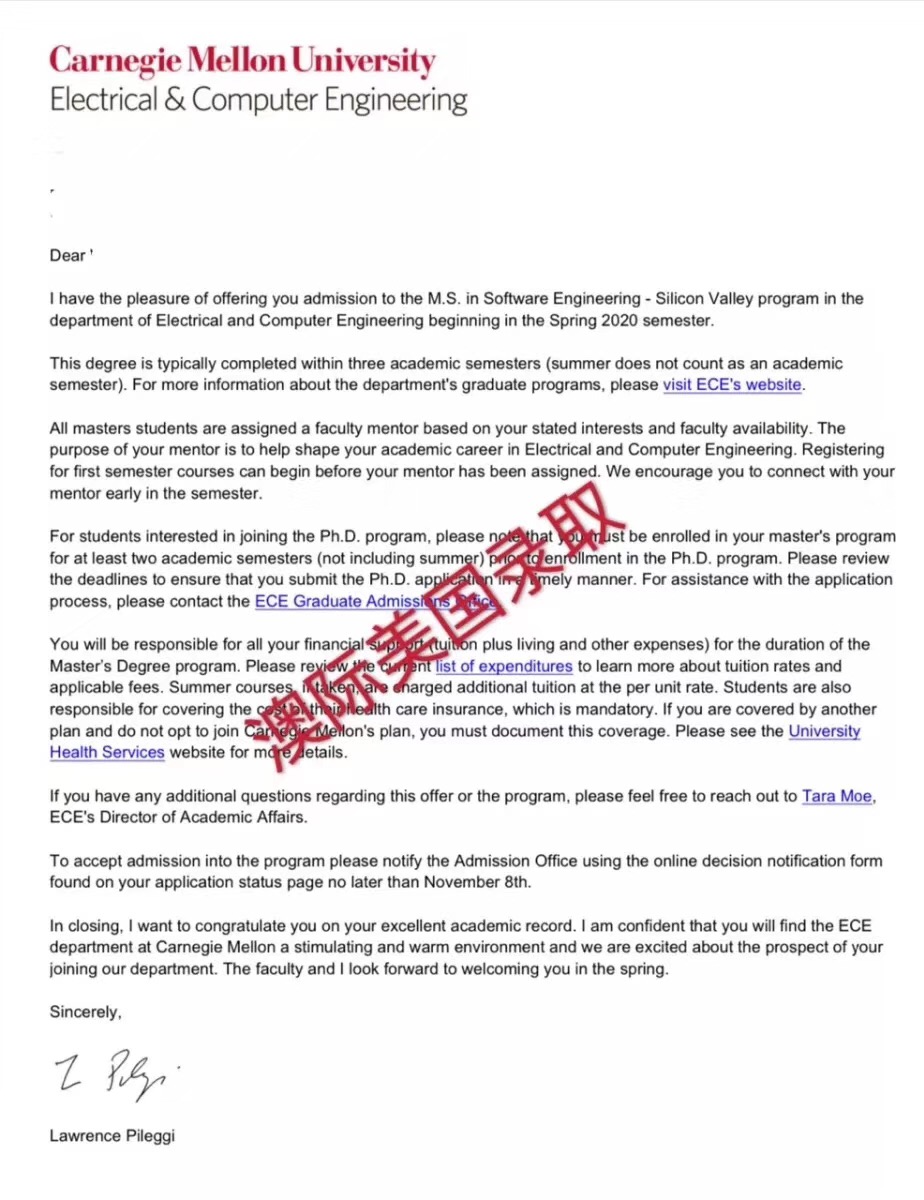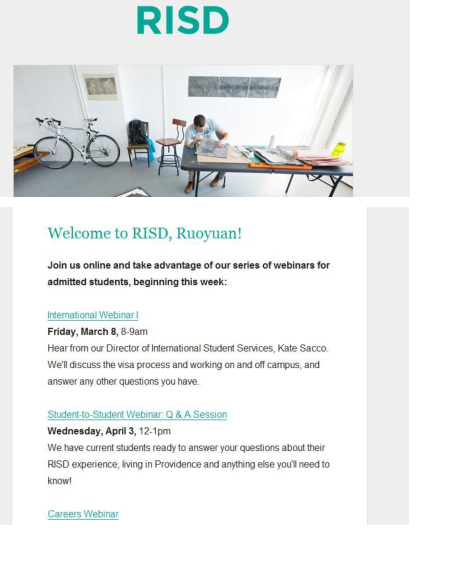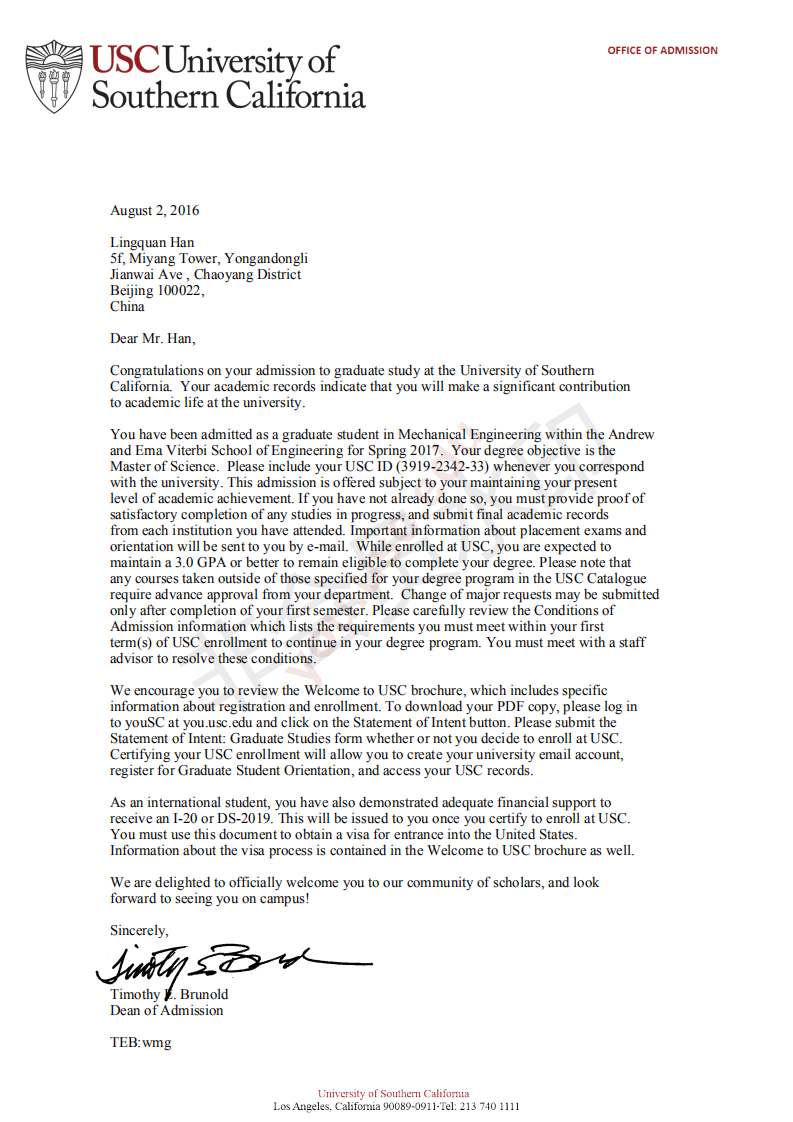Ten Tips for Better Writing
2017-03-27 444阅读
1. Express yourself in positive language. Say what is, not what is not. [b][b]2. Use transitions between paragraphs. Transitions tie one paragraph to the [b]next. [b] ◆A transition can be a word, like later, furthermore, additionally, or [b]moreover; a phrase like After this incident...; or an entire sentence. [b] ◆If you are writing about Topic A and now want to discuss Topic B, you [b]can begin the new paragraph with a transition such as "Like (or unlike) [b]Topic A, Topic B..." [b][b]3. Vary your sentence structure. It's boring to see subject, verb, object [b]all the time. Mix simple, complex, and compound sentences. [b][b]4. Understand the words you write. You write to communicate, not to impress [b]the admissions staff with your vocabulary.When you choose a word that means [b]something other than what you intend, you neither communicate nor impress. [b]You do convey the wrong message or convince the admissions committee that [b]you are inarticulate. [b][b]5. Look up synonyms in a thesaurus when you use the same word repeatedly. [b]After the DELETE key, the thesaurus is your best friend. As long as you [b]follow Tip 4, using one will make your writing more interesting. [b][b]6. Be succinct. Compare: [b] ◆During my sophomore and junior years, there was significant development [b]of my maturity and markedly improved self-discipline towards school work. [b] ◆During my sophomore and junior years, I matured and my self-discipline [b]improved tremendously. [b] The first example takes many more words to give the same information. [b]The admissions people are swamped; they do not want to spend more time than [b]necessary reading your essay. Say what you have to say in as few words as [b]possible. Tips 7, 8, and 9 will help you to implement this suggestion. [b][b]7. Make every word count. Do not repeat yourself. Each sentence and every [b]word should state something new. [b][b]8. Avoid qualifiers such as rather, quite, somewhat, probably, possibly, [b]etc. [b] ◆You might improve your writing somewhat if you sometimes try to follow [b]this suggestion. [b] The example contains nonsense. Deleting unnecessary qualifiers will [b]strengthen your writing 1000%. Equivocating reveals a lack of confidence. [b]If you do not believe what you write, why should the admissions officer? [b][b]9. Use the active voice. Compare: [b] ◆The application was sent by the student. Passive voice [b] ◆The student sent the application. Active voice [b] They both communicate the same information. The active voice, however, [b]is more concise; it specifies who is performing the action and what is the [b]object. The passive voice is wordier and frequently less clear. [b][b]10. Read and reread Elements of Style by William Strunk, Jr. and E.B. [b]White. Containing basic rules of grammar, punctuation, composition, and [b]style, this indispensable classic is available in paperback and is only [b]eighty-five pages long. [b]立即咨询
留学咨询
更多出国留学最新动态,敬请关注澳际教育手机端网站,并可拨打咨询热线:400-601-0022
留学热搜
相关推荐
- 专家推荐
- 成功案例
- 博文推荐

Copyright 2000 - 2020 北京澳际教育咨询有限公司
www.aoji.cn All Rights Reserved | 京ICP证050284号
总部地址:北京市东城区 灯市口大街33号 国中商业大厦2-3层









高国强 向我咨询
行业年龄 13年
成功案例 3471人
留学关乎到一个家庭的期望以及一个学生的未来,作为一名留学规划导师,我一直坚信最基本且最重要的品质是认真负责的态度。基于对学生和家长认真负责的原则,结合丰富的申请经验,更有效地帮助学生清晰未来发展方向,顺利进入理想院校。
陈瑶A 向我咨询
行业年龄 17年
成功案例 5146人
拥有大量高端成功案例。为美国哈佛大学、宾夕法尼亚大学等世界一流名校输送大批优秀人才。
齐亚楠 向我咨询
行业年龄 15年
成功案例 4070人
商科案例有哥伦比亚大学等,工科案例有麻省理工大学等,艺术案例有罗德岛大学等。
李君君 向我咨询
行业年龄 15年
成功案例 4157人
成功案例涉及美国排名前60的院校,专业涵盖商科(金融,会计,管理),工科(生物工程,化学工程,计算机科学,电气工程)等热门领域。